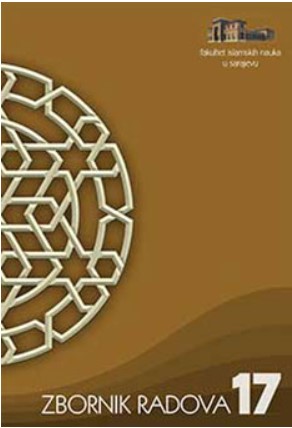IKBAL I ZAPADNJAČKO RELIGIJSKO MIŠLJENJE NJEGOVOG DOBA
IQBAL AND WESTERN RELIGIOUS THINKING OF HIS TIME
Author(s): Muhammad Ma'rufSubject(s): Anthropology, Psychology, 19th Century Philosophy, Contemporary Philosophy, Indian Philosophy, Philosophy of Religion
Published by: Fakultet islamskih nauka u Sarajevu
Keywords: religion, positivism; naturalism; anthropology; psychology;
Summary/Abstract: Ikbal’s opinion was influenced by a variety of theological and philosophical schools and movements that were popular during his stay in Europe. In his ideas and theories one can identify luscious, reflections and shadows of idealism, realism, historicism, naturalism, spiritualism, etc. The ability to synthesize thoughts and artistic traditions of East and West has made him one of the few thinkers whose worldviews adorned completeness, comprehensiveness and dynamism. Dr. Muhammad Ma’ruf in his book Iqbal and Western religious thinking of his day has done a comparative study which examines Western theological and philosophical schools and movements by comparing them with Ikbal’s theories and ideas. This work consists of ten chapters. The fifth chapter is entitled “Iqbal and religious naturalism.” The first part of this chapter deals with Iqbal’s opposition to Western scientists-philosophers who have approached religion in a positivist and naturalistic manner. The similarities and differences between Ikbal’s and Haeckel’s understanding of unity of substance and mechanistic concept are pointed out. The second part presents a comparative analysis of Ikbal’s and of Western anthropologists attitudes to study the possibilities of scientific culture, its continuity of specific domains and roles of science and religion and the origins of religion. In this context Tylor’s, Frazer’s and Reinach’s theories are briefly treated. In the last section, the author presented the theory of Western psychologists as well as Iqbal’s perception of these theories. In this section, the author focuses on Leub’s theory of purely biological values of religion, Freud’s understanding of the origin, nature and the future of religion and Jung’s understanding of the relationship between God and the unconscious, “telos” of religious activities and “individuation”.
Journal: Zbornik radova Fakulteta islamskih nauka u Sarajevu
- Issue Year: 2013
- Issue No: 17
- Page Range: 155-167
- Page Count: 13
- Language: Bosnian

